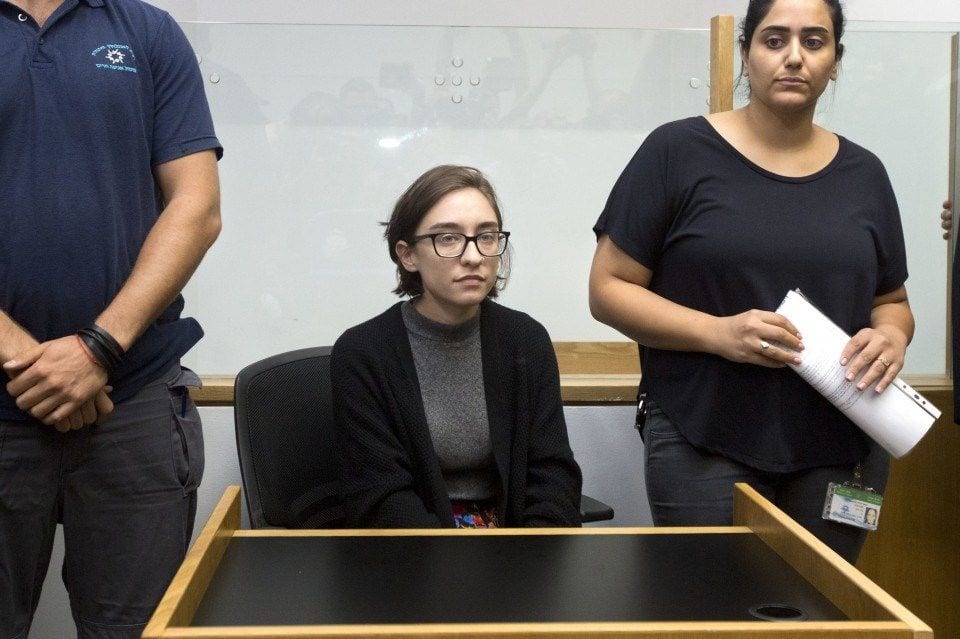The case of John Cheney-Lippold, a University of Michigan professor who declined to write a letter of recommendation for a student for admission to a study-abroad program in Israel and….

The case of John Cheney-Lippold, a University of Michigan professor who declined to write a letter of recommendation for a student for admission to a study-abroad program in Israel and subsequently has been disciplined by the university for his decision, raises a number of issues of great concern for the academy at large.
On Oct. 3, Elizabeth Cole, the interim dean of UM’s College of Literature, Science and the Arts, wrote Cheney-Lippold a disciplinary letter. In the letter she states, “Your conduct has fallen far short of the University’s and College’s expectations for how LSA faculty interact with and treat students. … This letter is a strong warning that your behavior in this circumstance was inappropriate and will not be tolerated.” She also informed him that because of his action, he would not receive a merit raise, would be deprived of sabbaticals, and might be dismissed from the university if “a similar incident occurs in the future.”
At the time Lippold-Cheney declined to write, the University of Michigan had no rule that mandated professors provide such letters — as Cole explicitly acknowledges. While being too busy is a legitimate excuse not to write, Cole goes on to say that faculty’s discretion “does not extend to withholding a letter because of your personal views regarding a student’s place of study.” But what if the student’s place of study is discriminatory, not because of some “personal view” but based on a documented set of policies and actions?
Cole’s letter implies that any faculty member who makes a principled decision not to write a letter for admission to an institution that discriminates against those of a particular race, ethnicity, national origin, or indeed any person based on group identity may be subject to dismissal.
There are two issues that need to be addressed in this instance: Would Cheney-Lippold face dismissal had he refused to write a letter for a student who wished to attend an educational program administered by a school that discriminated against Jews, gays, blacks, etc.? If so, and here is the second issue, disciplining faculty who refuse to write letters for programs that have discriminatory practices contradicts the self-declared ethos of the University of Michigan, which strongly prohibits discrimination against any individual “because of race, color, national origin, age, marital status, sex, sexual orientation, gender identity, gender expression, disability, religion, height, weight, or veteran status, except as allowed by the need for bona fide occupational qualifications.” How odd then that Cole is happy to dismiss a person who acts according to that ethos in protesting Israel’s discriminatory practices against Palestinians, and indeed against anyone critical of its regime.
Cheney-Lippold’s refusal to write was not the result of some personal and arbitrary whim. He supports the human rights-based Boycott, Divestment and Sanctions (BDS) movement created by more than 170 Palestinian civil society organizations. BDS seeks the end of Israeli occupation of Arab territory, the full equality of Palestinian citizens of Israel and the right of Palestinian refugees to return to their homes. Supporters include Bishop Desmond Tutu and 2018 Nobel laureate George P. Smith.
I doubt that UM would rebuke a Nobel Prize-winning professor in the way it has Cheney-Lippold. But what about ordinary professors? As The Post reports, Lucy Peterson, a teaching assistant, has similarly declined to write a recommendation for a student applying to study in Israel (though she says she’d be glad to write for him in other cases). Peterson is in an especially vulnerable position — and her action speaks of an even greater courage.
One question immediately comes to mind: Isn’t she discriminating against Israel? For supporters of BDS (disclosure: I am one), the answer is easy: Peterson and Cheney-Lippold are not arbitrarily singling out Israel. They are responding to the fact that Israel systematically discriminates against non-Jews (and even some Jews, if they are critical of Israel) by answering a call to boycott.
Consider the recent case of a U.S. student of Palestinian background, Lara Alqasem, whom Israel has refused entry because of her criticism of Israel’s policies. The chilling message she got from Gilad Erdan, Israel’s minister for public security and strategic affairs, was this: “If Lara Alqasem declares clearly and explicitly that she erred in the past, we will reconsider our position regarding her entry to Israel.” This sounds like something one would expect from a functionary during China’s Cultural Revolution.
Cole’s letter bypasses the issue of Israel’s systemic discrimination and uses purposefully vague language to deny a professor his right to free speech — which is, by the way, what the Supreme Court has declared boycotts to be. She has declared Cheney-Lippold’s (and Peterson’s actions) to be unacceptable, and by extension, accepted Israel’s discrimination against its critics, of whatever faith or ethnicity.
But here’s a final, and very real danger: Disciplining faculty who refuse to write letters opens up the possibility that universities will be turned into pawns of ideologically-driven organizations who target professors critical of their views; they could engage students to ask for letters they know the professors are, based on their principles, likely to decline to write. University leaders should be “expected” to uphold free speech and resist being manipulated into disciplining those who exercise their rights in defense of those who cannot.
